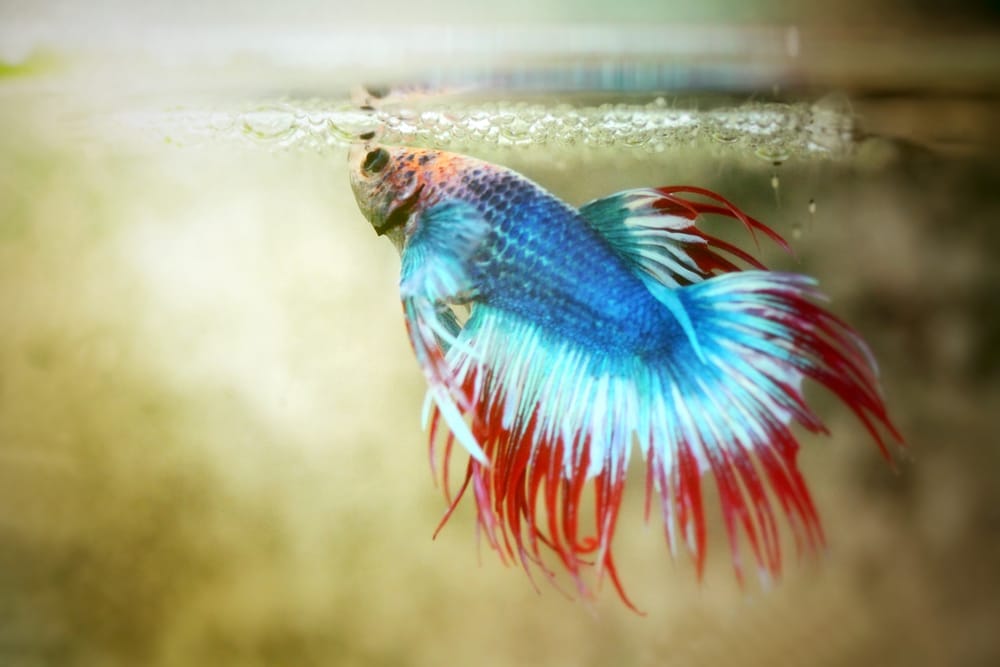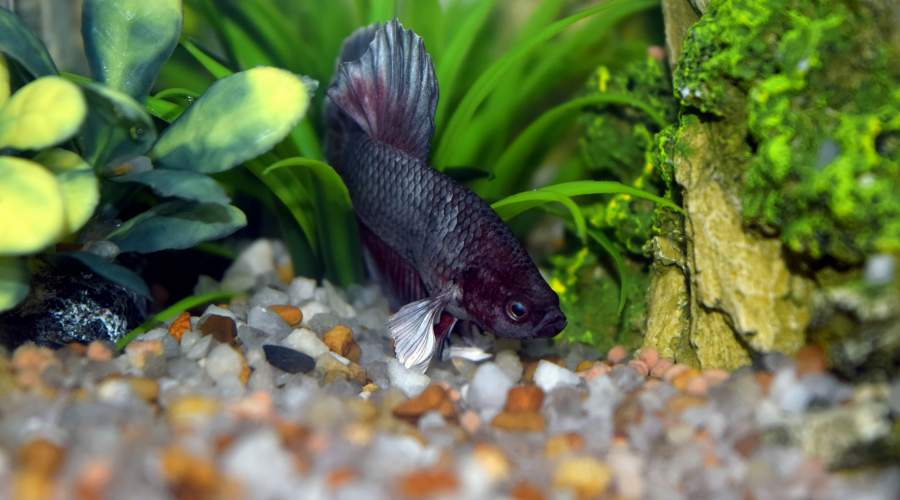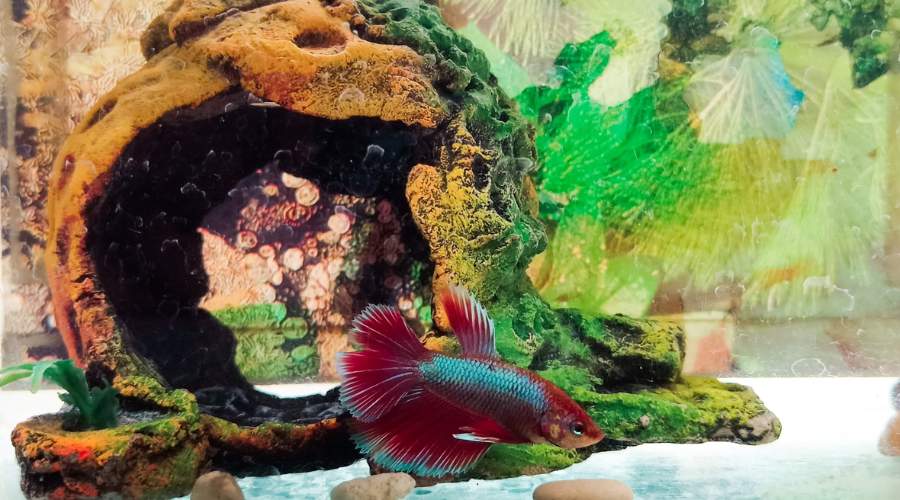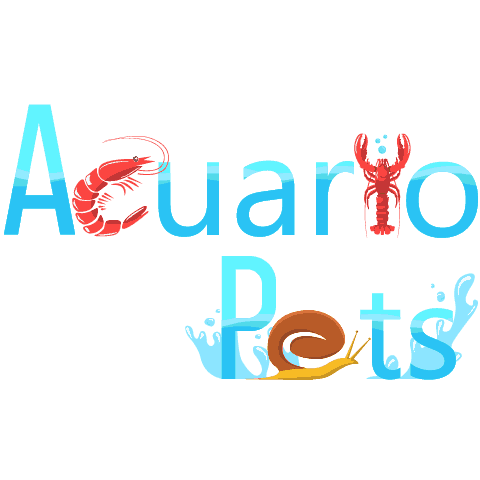This post was created with help from AI tools and carefully reviewed by a human (Muntaseer Rahman) . For more on how we use AI on this site, check out our Editorial Policy.
Check Out These FREE Tools We Made JUST For You!
What Is The Best High-Protein Food For Betta Fish? (Pellets, Frozen, Live)

Your betta is basically a tiny underwater carnivore with anger management issues.
And just like any self-respecting predator, they need serious protein to stay healthy and show off those gorgeous colors that made you fall in love with them at the pet store.
The Protein Requirements That’ll Shock You
Here’s what most betta owners get completely wrong.
Research published in the Journal of Fish Biology shows that bettas need 45-50% protein in their diet for optimal growth and reproduction. That’s way more than your average tropical fish flakes provide.
Wrong! Those colorful flakes you see everywhere? They’re basically fish junk food.
Most quality betta pellets only contain 36-42% protein, which explains why so many bettas look dull and act lethargic.
High-Protein Pellets: Your Daily Go-To
The Champions

Check latest price on Amazon
Hikari Betta Bio-Gold takes the crown for good reason. It packs 38% protein with fish meal as the first ingredient, plus stabilized vitamin C.
The pellets float perfectly, so you can actually see if your picky eater is finishing dinner.

Check latest price on Amazon
NorthFin Betta Bits is what serious betta keepers swear by. Animal-based proteins fill the top three ingredient spots, and there’s zero artificial nonsense.

Check latest price from Amazon
Fluval Bug Bites gets creative with its approach. Made primarily from black soldier fly larvae, it hits up to 40% protein and mimics what bettas actually hunt in the wild.
What Makes Pellets Worth It
Pellets aren’t just convenient – they’re nutritionally consistent.
You get portion control without the mess of live food, and quality brands pack all essential nutrients into bite-sized packages.
Some pellets expand significantly when wet, so soak them in tank water first if your betta attacks food instantly.
Frozen Foods: The Protein Powerhouses
Plot twist: frozen foods often beat pellets in the protein department.
Bloodworms: The Betta Favorite
Frozen bloodworms are one of the best foods you can provide bettas because they’re basically candy that’s actually good for them.
Hikari brand bloodworms feed out cleanly and are the highest quality you’ll find in most pet stores.
The catch? Feed bloodworms only once or twice a week as treats because they can cause digestive issues if overfed.

Brine Shrimp: The Color Booster
Brine shrimp are packed with proteins, vitamins, and amino acids that make your betta’s colors pop like Instagram filters.
Foods rich in carotenoids like shrimp help boost red, yellow, and orange shades while providing antioxidant protection.
Daphnia: The Digestive Helper
Daphnia are excellent for relieving constipation and provide high roughage content that promotes healthy digestion.
Live Foods: The Ultimate Experience
Live foods are the Michelin-starred dining of the betta world.
Why Bettas Go Crazy for Live Food
Bettas get increasingly aggressive during feedings when they have to stalk their prey – it’s like watching a nature documentary in your living room.
Live blackworms provide hours of enrichment as bettas hunt them down one by one, burrowing into substrate.
The Reality Check
Live foods carry parasite risks and aren’t always available.
Make sure to get live foods from reputable fish stores that keep them refrigerated in clean, odorless water.

What to Avoid (This Might Surprise You)
Those “Betta” Foods That Aren’t
Goldfish flakes are basically poison for bettas. Bettas have very short digestive tracts and don’t process fillers like corn and wheat well – these cause bloating and constipation.
Generic tropical flakes lack the protein content bettas desperately need.
The Filler Trap
If the first few ingredients say “soy” or “rice,” steer clear – you’re basically feeding your carnivorous fish salad.
Bettas receive no nutritional benefit from fillers and just pass them off as waste.
The Feeding Schedule That Actually Works
Here’s where most people mess up royally.
Portion Control Reality
A betta’s stomach is roughly the size of their eye – let that sink in next time you’re dumping pellets.
Many pellets expand to more than 2X their size once wet, so those “few pellets” become a feast.
The Pro Schedule
Daily: Quality pellets (2-3 pieces) 2-3 times per week: Frozen bloodworms or brine shrimp Once weekly: Fast day (bettas can survive 14 days without food)
Adult bettas can be fed once per day, and babies need twice daily feeding.

Protein Content Comparison Table
| Food Type | Protein Content | Best For | Frequency |
|---|---|---|---|
| Premium Pellets | 38-42% | Daily feeding | Once daily |
| Frozen Bloodworms | 50%+ | Treats/conditioning | 2-3x per week |
| Live Foods | 45-60% | Enrichment | Weekly treats |
| Brine Shrimp | 40-45% | Color enhancement | 2-3x per week |
| Bug Bites | Up to 40% | Daily variety | Daily rotation |
The Bottom Line: What Winners Feed
According to serious betta breeders, bettas require at least 40% protein to truly thrive.
The absolute best approach? Mix it up.
Use quality pellets as your foundation, supplement with frozen foods 2-3 times weekly, and throw in live foods when you can source them safely.
Your betta didn’t evolve to eat the same boring pellets every single day – they’re hunters who deserve variety.
The real secret? Research shows bettas fare better with controlled but regular feeding schedules rather than large, infrequent meals.
Stop guessing what your betta needs and start feeding like the predator they actually are.
About Author
Hello, I’m Muntaseer Rahman, the owner of AcuarioPets.com. I’m passionate about aquarium pets like shrimps, snails, crabs, and crayfish. I’ve created this website to share my expertise and help you provide better care for these amazing pets.
Disclaimer
This site is owned and operated by Muntaseer Rahman. AcuarioPets.com is a participant in the Amazon Services LLC Associates Program, an affiliate advertising program designed to provide a means for sites to earn advertising fees by advertising and linking to Amazon.com. This site also participates in other affiliate programs and is compensated for referring traffic and business to these companies.

